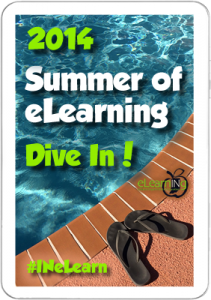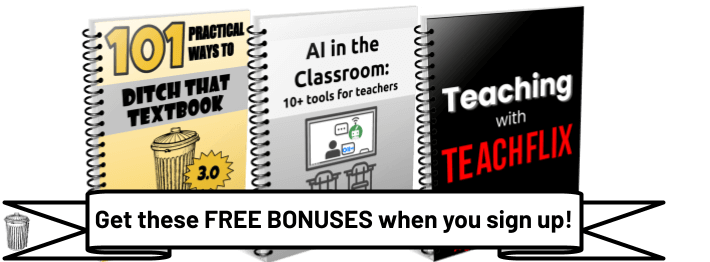
Water needs to be heated to 212 degrees Fahrenheit (100 degrees Celsius) to boil. Trying to make it hotter wastes resources. As teachers, sometimes we overextend ourselves without improving the results of our work. Consider the “minimum effective dose.” (Flickr / Scott Akerman)
I always dreaded handing papers back to students.
After they had turned them in, I spent hours grading them. Marking them up. Correcting the errors.
Then, when I would hand them back, so many of them ended up in the trash without a glance at my work. My work to help them improve.
I knew it was time to change my strategy.
I believe that I, as well as many other teachers, do too much. (I know … this sounds like heresy. But hear me out.)
I see teachers that arrive before school, stay after school for hours and take work home with them.
They grade papers. They write lessons. They create bulletin boards and decorate their classrooms.
They spend hours of their lives, often doing things that really matter.
But they also spending hours doing things that don’t push the needle in terms of the change they want to make. (And so do I.)
The “minimum effective dose” could change things. Here’s the gist of it:
It’s “the smallest dose that will produce the desired outcome,” writes Tim Ferriss, the author of “The 4-Hour Workweek.” “Anything beyond the MED is wasteful. To boil water, the MED is 212 degrees Fahrenheit (100 degrees Celsius) at standard air pressure. Boiled is boiled. Higher temperatures will not make it ‘more boiled.’ Higher temperatures just consume more resources that could be used for something more productive.”
Ferriss uses this concept in “The 4-Hour Body” to optimize exercise.
Michael Hyatt uses it to optimize his time blogging.
I submit that we as educators should use it to optimize our time and resources teaching.
Take my graded papers example above. I learned from watching students pitch corrected papers in the trash that the “red pen technique” wasn’t an effective way of helping them learn Spanish (at least for some of them).
Maybe times have changed. Maybe it wasn’t that effective a practice in the first place.
Regardless, with these students, I was overboiling the water.
Since then, I’ve had my students blog more, and not because writing in blogs is more effective than writing on paper. It’s because I can help them work through the writing process.
They write their blog posts in class. As they write, I circulate around the room, spotting changes and praising their good work. It’s instant feedback. If I stop and explain a concept they’re struggling with, they’re more likely to see it as working side by side to learn how to write more accurately instead of nitpicking grammar with a red pen afterward.
Returning papers with errors marked in red highlights what they did wrong after the fact.
Helping through the writing process helps them write better in the process.
And, to tie back to the minimum effective dose, it’s the least amount of resources to produce the most impact. When those blog posts are done, I’ll write a couple quick comments on them and assign a grade, but I won’t rehash every little mistake. (Often I won’t need to because that work will already be done — and there will be fewer mistakes.)
I’m not saying that we should cut out all activities that don’t improve our students’ skills. And I’m certainly not saying that we should eliminate everything that doesn’t make test scores and grades improve.
We need to keep a laser focus on what we want to accomplish. We need to reduce or eliminate what is ineffective and try to find alternatives that do the same or better with less time, effort and other resources.
Teachers often say they’re overworked and underpaid, and they are. But maybe the overworked part is partially our own fault.
We need to stop overboiling the water.
What do you think of the “minimum effective dose”? Do you have any “overboiled water” activities? Have you ever identified any and replaced them? Share your thoughts and experiences in a comment below!
(For notifications of new Ditch That Textbook content and helpful links, “like” Ditch That Textbook on Facebook and follow @jmattmiller on Twitter!)
 Matt has been nominated for a Bammy Award for Secondary Teacher of the Year. If you would like to vote for him for the award, click here or on the icon to the right.
Matt has been nominated for a Bammy Award for Secondary Teacher of the Year. If you would like to vote for him for the award, click here or on the icon to the right.
 Matt is scheduled to present at the following upcoming events:
Matt is scheduled to present at the following upcoming events:
Interested in having Matt present at your event or school? Contact him by e-mail!

Session expired
Please log in again. The login page will open in a new tab. After logging in you can close it and return to this page.
[…] so that I could lighten my workload and hopefully, my outlook. You can read more about this from Matt Miller and Angela Watson, if you’d […]
I also resonated with this, spending hours documenting and grading absolutely everything kids did, even if it was just a completion grade, then being sad and grumpy when they didn’t even look at my comments. Whether digital or on paper, kids tended to just look at the grade and internalize it as a personal judgement, not an effort to help them improve. Plus, it takes the learning power away from the kid. I plan to have students track evidence of their learning and submit it to me. I may agree or disagree, ask questions, give feedback, ask for more evidence, but the student will be grading him/herself with input from me.
[…] may take the feedback to reinforce that they are not capable. Matt Miller has a blog post on Ditch That Textbook about putting your efforts into things that actually improve student learning. If you’re […]
[…] divided into four major categories: Web tools, Chromebook apps, iPad apps, and Android apps.” Stop doing too much: The “minimum effective dose” for educators | Ditch That Textbook Understanding the Complexities of Fair Use, Creatively and In the Classroom — Emerging Education […]
As I sit here staring at the stack of papers waiting to be graded on a Sunday afternoon I couldn’t agree more. I heard something at a curriculum meeting Friday, that at first seemed blasphemous, but after a while was, not just a lightbulb, but a great ray of sunshine. Instead of grading whole essays, have students choose which paragraph or sentence is their best based on whatever criteria is the focus and grade that one sentence. One sentence instead of a 5 paragraph essay. One sentence. This all came out in a discussion of the 11 minute essay so it is a guided essay already. One sentence. I could grade that quickly, possibly that same bell if the essay was first and other activities that might not need my full attention came after. It is almost exciting, which, after this year of PARCC and AIR testing is something I need.
In this day in age, students want their feedback as soon as possible just like everything else in their lives. When I give a test, they want it graded right then and there. I get the biggest moans when I give a test on Friday and collect them. Then, I probably won’t get them graded and it takes me a week, or more, to grade them and input them. (Don’t tell my principal though). I agree that when they get them after an extended amount of time, they don’t feel the same connectedness to the assignment. Or I might make comments and they won’t see the connection anymore because it’s been a day or more. In the moment authentic assessments are more meaningful. Assessing and giving feedback during the middle of a writing is definitely more impactful than at the end after it’s been handed in.
Great topic on moving forward and making me think of ways to assess. Thanks!
You’re right, Matt … and we’ve got to remember that we’re human and we have family/friends/other interests to tend to outside of class. We have an obligation to our students, but it can only go to a certain point. If we’re still sitting at our desks in the classroom at 8 p.m. every night because of all of the work we’re doing outside of class, there’s something wrong. And we’re not getting a good “return on investment” in the extra hours we’re spending … kids aren’t gaining that much more because of all of those extra hours.
I love reading your reflections, Matt. Thanks, and keep them coming!
Matt, as others have commented this piece is spot on. As a “former”, and I emphasize “former”, teacher of the sciences in middle school and high school this was an issue. My solution was to redesign the program itself- changing classwork to fieldwork, essays to public speaking engagements, and exams to determine mastery of knowledge to mentoring of elementary students to express mastery of content. Therefore, the emphasis on “former” teacher.
Our emphasis here in Kentucky, is on the “standardized” program of teaching that we all know may not be effective with all students. So, strike one for change is that it goes against the program. Strike two for change, is that even though your students toss their graded work in the waste bin, it is at least visible to them and an objective system. I made students step outside their comfort zone, making them prove their mastery, not through memorization/regurgitation, but through a real-world measurement tool – action.
I believe we need to explore real-world experiences as measurement tools, assessment through performance in a real-life setting. How else will students survive and excel in the job market and the research facility?
Former teacher, now current “facilitator,” maybe? I like how you frame the idea of what you do! You’re right … real-world experiences are really what we all should strive for. Those experiences are the ones that tend to engage students the best, too, in my experience. Thanks for the comment, Kelly!
I am so on board with this idea of doing less to see more results. Like you, I labored over papers, making so many revision suggestions, just to see students give them only cursory glances. I’ve found that using sites such as Google docs and Wikispaces allow peers, and later me, to make comments as work is in progress, which is certainly a more welcome time for suggestions. Digitally, all comments and revisions are saved, should you care to revisit them. I’ve found that paired readings are more effective if students are given just two or three main ideas on which to focus (which goes along with what you were saying). If partners can catch 80% of the smaller issues, that alone saves me lots of time! Great topic.
Keith, the work in progress revision is so much more powerful than the “write the rough draft and I’ll mark it up” approach! I think students really value when their teachers — and their peers, like in your paired readings — work side-by-side with them to help make an assignment its best, rather than pick out errors after they’ve worked hard on doing their best work. Thanks so much for your insight!
As a math teacher, I discovered the magic of “automated assessments.” I began to put more and more items online to quickly quiz my students and give them the instant feedback they deserve. It was an adjustment at first, but we all grew to appreciate how quickly an assessment could be administered and graded without waiting on me to hand-grade it. Did I do every assessment online? No, but I definitely pushed the envelope for as many different question types as possible: multiple-choice, T/F, matching, fill-in-the blank, numeric response, even the occasional essay question. It was a lot of work on the front-end, but it saved hours on the back end.
Tim, you’re so right on automated assessments! They do save hours on the back end, and I think the immediate gratification is golden. I know many educators talk about deep summative assessments and how the auto-graded quizzes aren’t great pedagogical tools. I think, though — especially in this world of instant gratification — that giving students instant feedback is very powerful. Sometimes, when we grade a test overnight and hand it back the next day, students aren’t “in the moment” of taking the test and have forgotten the feelings they had tied to certain questions or concepts. Those feelings are still there when they receive grades instantly, and the connection between the grade and how they took the quiz is strong. Great point, Tim!
This is a great piece Matt, dead on. Has me thinking about the different ways I over boil the water as a principal. I think many administrators over-boil formal observation reports thinking that they will change the lives of the teachers they observed. I often think these formal observation reports are more for our benefit than for the teacher’s. The real power of the observation process is when the leader is seen as a trusted coach who can help give feedback for improvement. It’s more important to hold up a mirror to practice than to create an artful term paper/observation report.
Thank you for your thoughts Matt.
Thanks so much, Don, and I agree about similar things with teaching. I think we so often try to return every paper and take grades on everything when the real feedback that students treasure and take to heart are our honest, face-to-face, pointed praise and suggestions … kind of like the trusted coach you talk about.